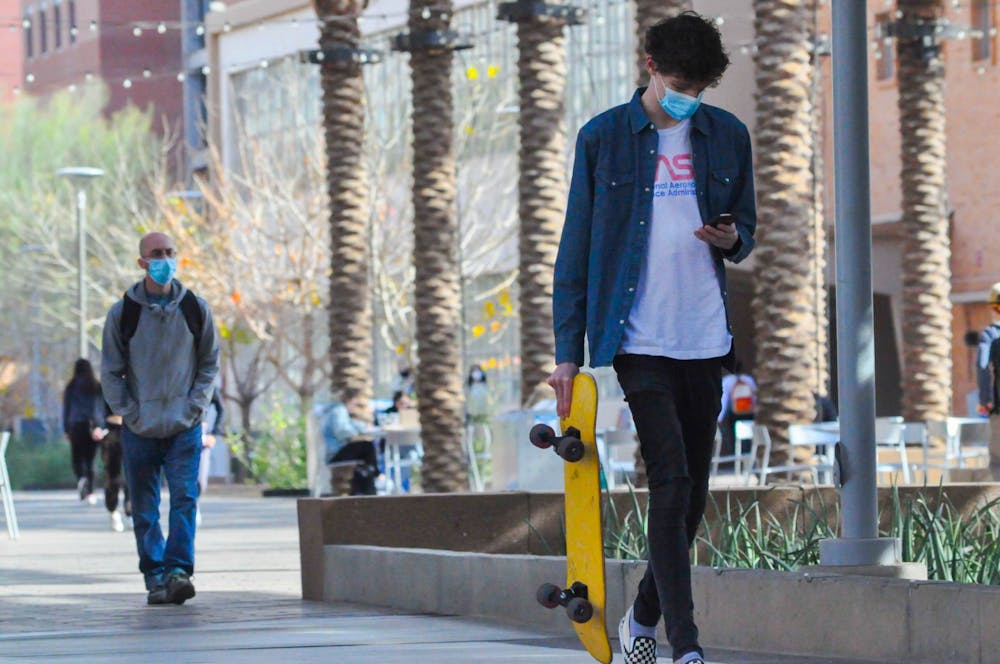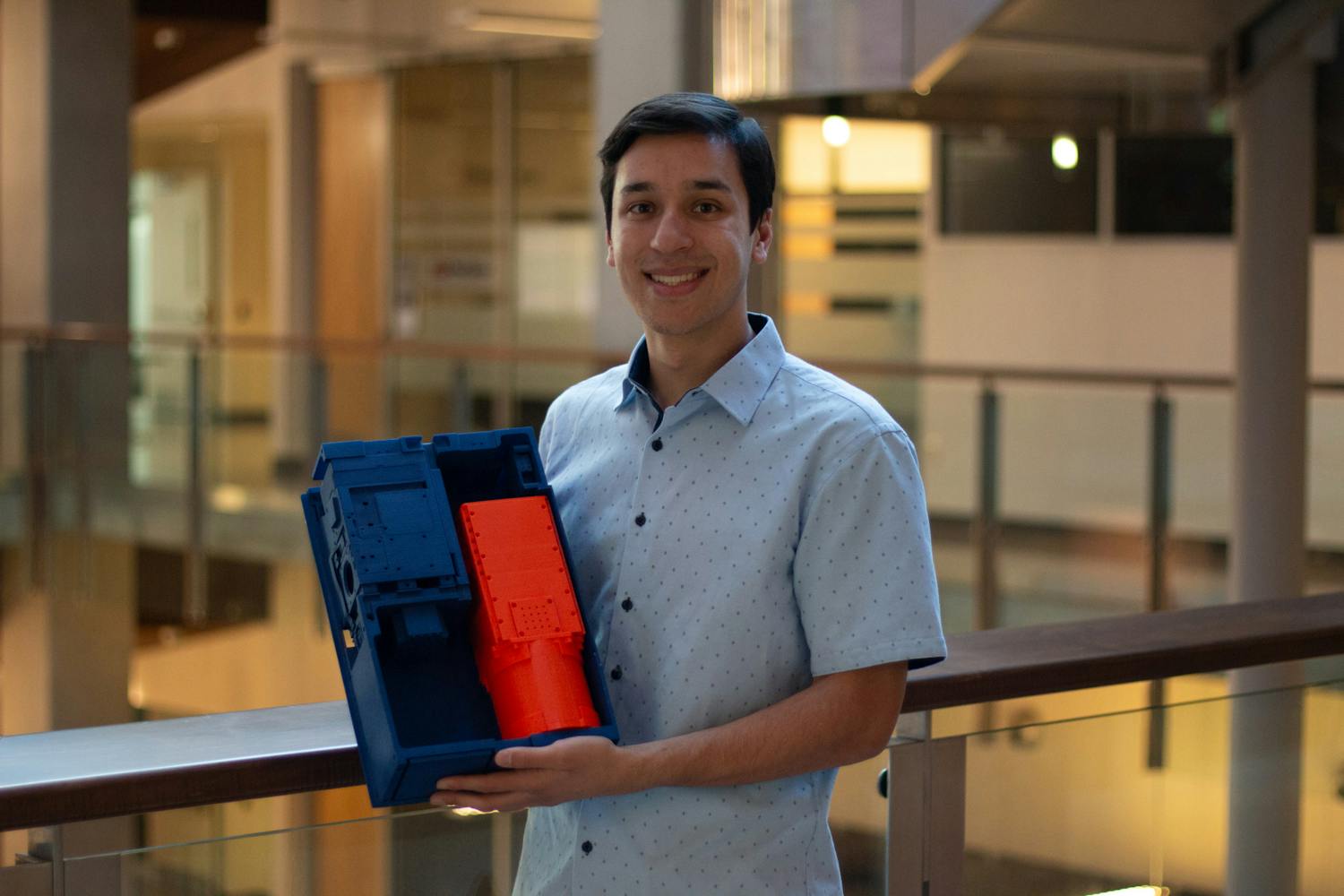This January, like many other institutions of higher learning around the country, ASU opened its doors for the spring term, hoping to take another step toward a “normal” school year. But the worsening COVID-19 pandemic and third wave has called into question whether ASU should be speeding toward reopening classrooms.
ASU’s contentious reopening for the fall semester was opposed by many faculty members and students, but the school pushed forward. From poorly enforced social distancing measures, to an illogical mandatory “health check,” it seemed University officials' attempt to normalize things was a total cash grab. Reopening was a bad idea then, and it's a bad idea now.
ASU’s decision to reopen given the current state of the pandemic shows a flagrant disregard for the health and safety of their own student and employee population, and the communities within which the University resides.
Last week, Arizona ranked first in the nation for average number of new COVID-19 cases per day in the U.S., according to the Centers for Disease Control and Prevention's COVID Data Tracker.
On the first day of the spring semester, ASU reported its second-highest number of active cases within the University community since the pandemic began.
Arizona is experiencing "the worst of the outbreak," said Dr. Joe Gerald, an associate professor at the UA's Mel and Enid Zuckerman School Of Public Health.
"We have the highest number of cases; we had the highest number of hospitalizations and ICU admissions; we have the highest number of deaths," Gerald said.
Arizona currently has no travel restrictions or self-isolation requirements for anyone entering the state, and students who are traveling could essentially get off a plane and walk into a class on the same day.
"Our trajectory is telling us that conditions are going to deteriorate further over the coming weeks," Gerald said.
University officials argue in-person classes are vital to student development and as long as precautionary measures are taken (such as cleaning and coronavirus testing), any resulting issue should be minimized.
Since COVID-19 has a greater health impact on older populations, many assume the traditional college student demographic is not as affected by the disease, leading to some colleges reopening — with options to go in person, attend online or a hybrid of both. This argument, however, discounts older professors and nontraditional students who are particularly vulnerable to it.
Now this may not even be the main issue, as the disease is primarily transmitted outside of the classroom. Parties are still going on, and people are still hanging out in enclosed spaces — which is partly the University's responsibility.
As ASU encourages faculty and students to return to campus, the University is inadvertently facilitating those risky encounters.
“As soon as they (students) walk out of the classroom, those safety nets, largely fall to the wayside,” Gerald said.
By reopening for in-person classes, ASU is putting the safety of surrounding areas at risk by rebuking their commitment to community health and demonstrating a lack of concern for local citizens. Additionally, as a government-funded organization, ASU needs to demonstrate its capacity as a leader in the community.
"When the public sees universities open for business, going about their routines, even if you accepted the premise that classroom instruction was safe, it sends a very strong signal to the rest of the community to normalize their behaviors along similar lines of argumentation," Gerald said.
The University is not only ignoring the community’s health, it's also bypassing the concerns demonstrated by many people in the area. In addition to providing testing for ASU and surrounding communities, the University should take the initiative to prevent the spread of the disease instead of only mitigating it.
"When you put us in comparison to other states and other countries, no one is doing worse in the developed world than Arizona. And that tells me, as a public health professional, that we need to do more, not less,” Gerald said. “I do believe that universities, along with other major institutions within the state, have a responsibility to model the behavior that we desire in others.”
Reach the columnist at srkrish5@asu.edu or follow @shradhakrish on Twitter.
Editor’s note: The opinions presented in this column are the author’s and do not imply any endorsement from The State Press or its editors.
Want to join the conversation? Send an email to opiniondesk.statepress@gmail.com. Keep letters under 500 words and be sure to include your university affiliation. Anonymity will not be granted.
Like The State Press on Facebook and follow @statepress on Twitter.




